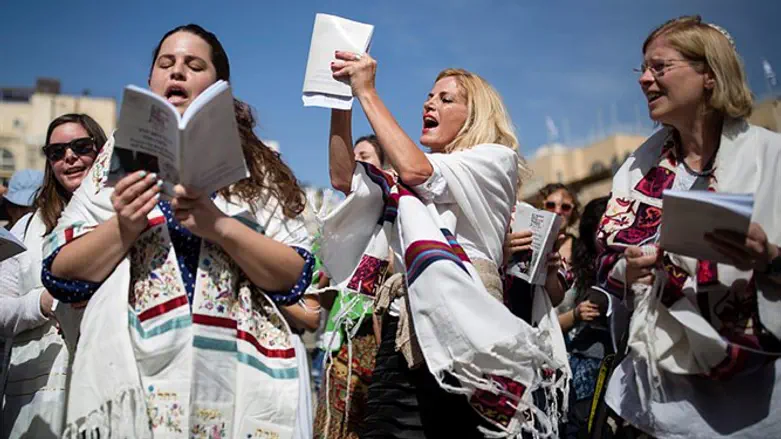
The Reform and Conservative movements have made an about-face on the Western Wall, telling the Supreme Court that they will no longer agree to the 'Western Wall Compromise', which would have expanded the area allotted for non-traditional prayer services at the southern end of the wall near Robinson's Arch, and that they now seek guaranteed rights for mixed-gender prayer services inside the existing Western Wall Plaza area.
The non-Orthodox movements also demanded representation in the Western Wall Heritage Foundation, which controls and manages the Kotel, Yisrael Hayom reported.
In a lengthy 27-page legal brief filed Monday with the Supreme Court ahead of an decision on the matter, the Reform and Conservative movements said that they had only agreed to accept the Western Wall Compromise because the area designated for mixed-prayer was to be included as part of the Western Wall itself.
"The petitioners capitulated on their demand for a pluralistic prayer space at the existing wall due to their understanding that the new Robinson's Arch would be part of the larger Western Wall area, with equal and public access points" read the missive.
The non-Orthodox streams said that that Robinson's Arch was not viewed as part of the existing Western Wall, noting "the complete physical separation between the prayer area located in the Robinson Arch area and the Western Wall site."
They noted that "the regulations regarding holy places define the the Western Wall as the northern plaza, and not Robinson's Arch."
The Reform and Conservative movements also told the court that they seek representation at the Western Wall Heritage Foundation, the group entrusted with managing and controlling the Western Wall, saying that "it is incomprehensible that the group which plays such a large role in the Western Wall's operations represents only the Orthodox, and not all other streams of Judaism."
In June, the government froze a plan which included moving the entrance to the mixed gender prayer section to the other sections' entrances and allowing representatives of the Reform and Conservative movements to be on the Kotel Committee.
The Supreme Court is expected to hand down a decision on the matter in the upcoming days. The Rabbinate says that Israeli law does not allow the Supreme Court to decide on matters which involve religion or holy places.